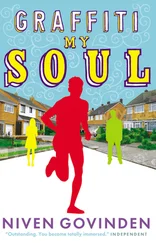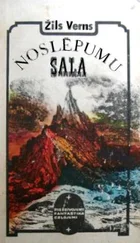“No one died,” she said. “But they could have. I want the bastard who set this up.” She stumped along the concrete apron, closing flapping locker doors, stopping to pick up the occasional abandoned filter mask, fingering the gleaming joints of a drench hose. “What I don’t understand is the elaborateness of it all. All those topped-up tanks and new batteries. Why? What was the point.” I had heard a woman on the street sound like that, a woman who had been on her way to the grocery shop, when a man had shouted at her, called her an ugly bitch. More bewildered than angry: What had she done to deserve such malice?
I was more interested in what was going to happen next. “Magyar, when we go out there, I don’t want any credit.”
“You mean you don’t want the attention.”
“That’s right.”
“There’s nothing I can do about what Kinnis or Cel might have said.”
“I know that.”
Her sigh sounded like the hissing of a flat tire over the suit radio. “I’ll do my best to keep the cameras off you. And I won’t mention your name. Good enough?”
“Yes.”
“Right. I’m doing this because I think I can trust you, and despite everything I like you, but one day you’re going to tell me what this is about.” I nodded. Time to worry about all that later. “Let’s get it over with.”
Decon One was waiting in the shower room with hoses and secondary suits. There were no cameras, so I just did as I was told, and stripped and showered, and let Magyar yell and fume and tell them they were idiots, that there wasn’t any danger, thanks to herself and her team… She was still arguing when we were passed along to Decon Two.
Another shower, this time being pestered by two tech specialists and the recon team leader who insisted on radioing everything, verbatim, to his first Go Team.
Everyone more or less ignored Maygar’s protestations that the plant was now safe. My name had only been mentioned once, just so that Operations could stand down the rescue aspects of its Go Teams. They sent a medical team, which hustled us into a small room draped with plasthene sheets and filled with the paraphenalia of high-tech medicine.
Cel and Kinnis were sitting on two of the beds. “Hey, Magyar, they won’t let us out.”
“We’re following procedure,” the medic with the most flashes on his epaulets said smoothly. “Regulations—”
Magyar was like a controlled explosion. “You’re in charge here? Good. I want to talk to the operations chief, now.”
“You can’t—”
“Then you do it. Verify the following: one, that Decon can confirm that I and my team maintained air integrity at all times; two, that our medical exam shows no ill effects of the PCE; three, that we obeyed all emergency procedures to the letter, that our conversations are on the record for analysis and discussion, and therefore our presence is no longer needed. And when you have all that sorted out, I want to add to the record my opinion that if you attempt to keep us here any longer against our will your behavior will be not only unethical but illegal.” She folded her arms. The medic gradually wilted under her stare and went to the phone.
Magyar sat down next to Kinnis. He grinned. “I’m glad they’ll listen to someone.”
She grinned back, and I realized she was not angry, but pleased with herself. She was planning something.
The medic finished on the phone. “You,” he pointed at Magyar, “you’re wanted in Ops for debriefing. You three,” to me and Cel and Kinnis, “you can go. You’re instructed to avoid the cameras.”
“Don’t worry,” Cel said shortly.
He nodded at one of his assistants. “He’ll escort you to the gate.”
“I know the way. Besides, I have to get my gear from the locker room.”
“It’s already been removed to zone three.” The cool zone. The edge of the contamination perimeter. “But—”
Magyar stood up. “Better do as they say, Cel, and just be glad they’re letting you go. Looks like I’ll be up all night.”
Cel agreed eventually, arid the three of us:trooped out behind the medic’s assistant.
Outside, it was as bright as day: emergency-response trucks sat in a circle with are lights burning into the black sandstone building. Camera teams, with anchors talking into their own spotlights. Dozens of groups in flash suits and air hoses, protective helmets, radios… I could almost smell their adrenaline, and wondered how they would work it off now that they wouldn’t be needed. While I watched, two ambulances turned off their flashing lights and drove away. There were probably about two hundred people watching and waiting for survivors. While most of them would be the next shift waiting to go in, many were media.
“Cel.” She turned. “Wait.”
“What’s going on?” Kinnis asked.
They had trusted me earlier, with their lives. “I can’t afford to have my face seen on the net, or my name mentioned. I need to avoid them.”
Cel shrugged, “I don’t see how we can help you.”
“I thought that if everyone was swarming to talk to one of you—or both of you—I could get away unnoticed.”
She narrowed her eyes at me. She didn’t relish the idea of a media feeding frenzy, and I didn’t blame her.
I had a sudden inspiration. “Kinnis, won’t your wife be worried?”
“Christ, yes. I hadn’t thought about that.”
“One quick way to let her know you’re safe would be to get on the net. You, too, Cel.”
“I don’t know,” she said slowly.
But Kinnis was looking at the cameras happily. “Being on the net would make me a hero to my kids, Cel: the guy who saved the city. And like she said, it would let my wife know I’m safe.”
“I don’t know,” Cel said again, then sighed. “I don’t know why I keep doing what you say.” Because I ask it. Katerine was right. “Come on, Kinnis. You head for those teams over there, I’ll take this side.” She walked out, waving. “Hey!” Lights swung her way.
Kinnis stepped out after her, to one side. “Me, too!”
I slipped into the shadow left behind by the piercing light and hurried away.
* * *
It was almost dawn by the time they were dressed and outside. The woman and Spanner stood in the doorway, murmuring. Something changed hands. Lore looked around, ignoring them. The apartment building was a converted warehouse, made of the long, thin bricks manufactured before the eighteenth century: they were in the center of the city, surrounded by trees and a high wall.
They found a cafe. Lore stirred her coffee aimlessly. Her body felt hopelessly confused: whenever she thought about what had happened she felt a flush of arousal followed quickly by shame.
“I don’t want to do that again,” she said quietly, not looking at Spanner.
“You enjoyed it.”
“Yes. That makes it worse.”
“It would have been better if you hadn’t liked it?”
“Yes. At least then I would have felt more like me. More in control.” She stirred the coffee some more. It slopped over into the saucer. “I just feel so… used.” No, she wanted to feel used, but she did not. She felt as though it did not matter, and that frightened her. She stared blindly across the river, broad here, and slow moving.
“Anyway, it’s done now. And you did enjoy it. You can’t tell me it wasn’t good.”
And it had been; it had been very good. What did that say about her?
“When did you drug me?” Her voice sounded surprisingly calm.
“Who says I drugged you?”
“Just tell me when.”
“After you had already taken off your dress.”
After you had already taken off your dress. So she did not even have that much of an excuse; she had already unbuttoned her dress. Some part of her had been willing, even without the drug.
Читать дальше












